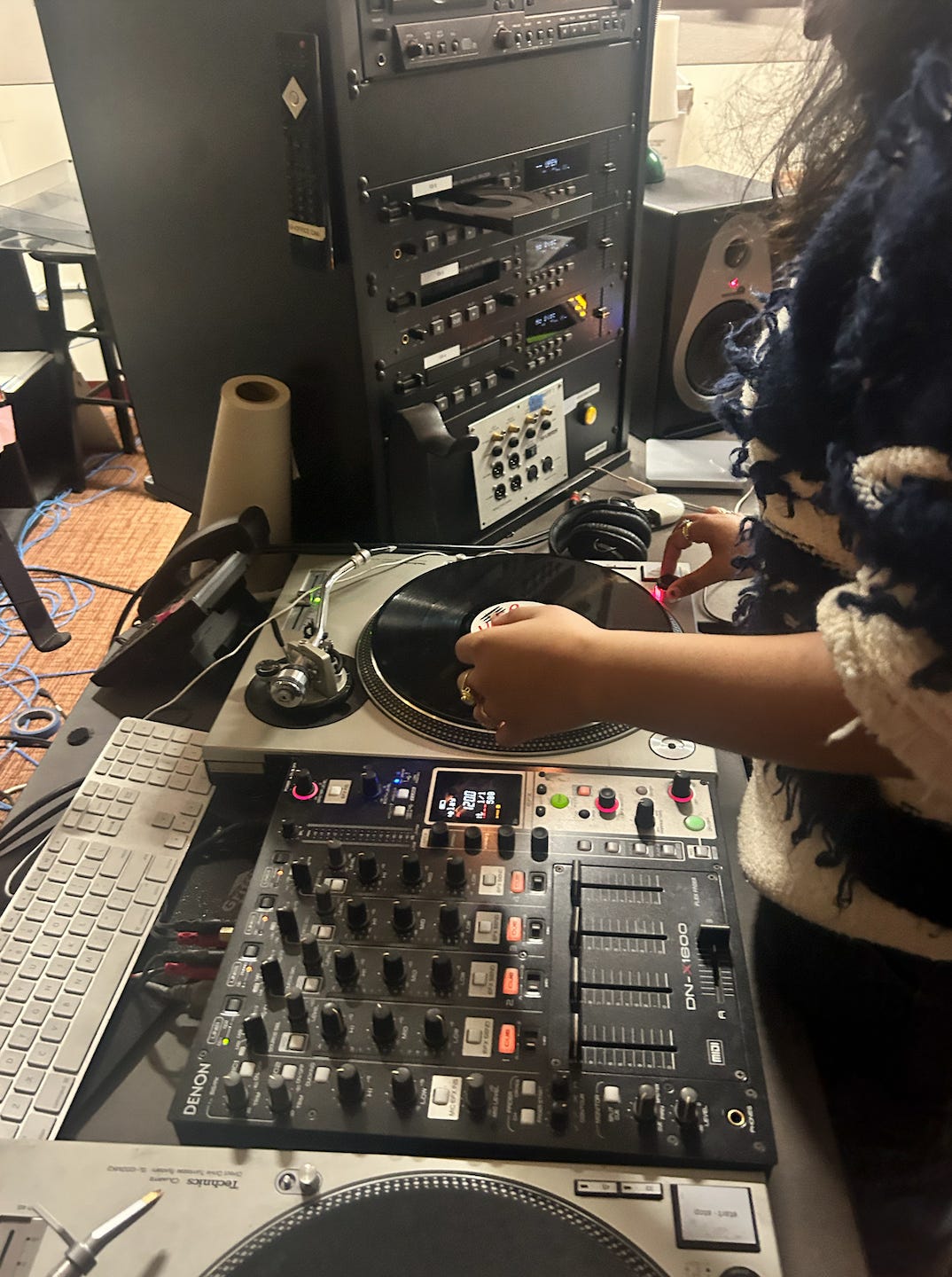EVERY GENRE PROJECT - November 2 - Nu Skool Breaks
Genre of the Day - Nu Skool Breaks
Album of the Day - Wide Angle by Hybrid (1999)
I recently joined college radio and part of the process of joining is that you shadow one of the DJs who already has a show for a few sessions to learn the process. For the most part, it’s just registering the information of the songs into Spinitron as you queue up your tunes of the day on Spotify. At a recent show a few days ago, my lovely DJ mentor showed me the glories of turntabling for the first time—it felt as if we ascended from just DJ to veritable disc jockeys. As we scratched and matched beats in real time, it gave me a newfound appreciation for the wide-open possibilities of sonic manipulation that the turntable brought into the world, and today’s genre is a fitting musical complement.
By the late ‘90s, breakbeats had broken out into the popular musical world in the form of pop-oriented big beat, particularly in the UK as acts like Fatboy Slim and the Chemical Brothers rose to prominence. There’s few better testaments to this cultural craze than one of my favorite episodes of the excellent Derry Girls in which the squad clamors to get into a Fatboy Slim concert to no avail. As big beat’s big break (say that five times fast) wavered, a new school of thought developed among certain producers. These producers took stock of the diversity of dance genres flourishing across the UK in the ‘90s and wove various strains together, mixing drum’n’bass, techno, and garage with an epic, longform precision that was less pop-oriented than big break’s incorporations of rock and hip-hop yet faster and still danceable.
In my research process, one crestfallen Reddit post posed the question, where did nu skool breakbeats go? The general consensus seems to be that dubstep’s wonkiness and derivative scenes like Florida breaks filled the vacuum. There’s something beautiful and bittersweet that these genres are so ephemeral, but it speaks to how dance music is best experienced in the moment, on site, wholly absorbing the sounds and ideas of each DJ night to night. A single club night, Rennie Pilgrem’s Friction, centralized the sound of new skool breakbeats. Just as with all of life’s changes, they're imperceptible day to day—the nights and weeks of going out pass by, the sounds and sights subtly changing and morphing into new genres without clean breaks (no pun intended). Luckily, YouTube playlists and CD rips have helped identify and immortalize particular sounds—this rip of Adam Freeland’s definitional 1996 Coastal Breaks is an excellent introduction to new skool breakbeat’s diversity of sounds.
I won’t shut up about Halloweekend, but I was dragged out for one final night, and was evidently so exhausted that upon coming home I fell asleep as my AirPods pumped the sound of new skool breaks in my ears. By that point, though, I’d heard most of the songs on Hybrid’s 1999 Wide Angle—and their cinematic beauty probably had something to do with ushering me into the dreamscape. There’s something trance-esque about the themes and the jubilant and grand string arrangements across the album floating over the robust but midtempo break beats and squelching layers of techno on songs like “If I Survive.” The velvet sonic indulgence and strange, cosmic commentary of “I Know” reflects a cosmopolitanism also evidenced on “Sinequanon,” an unhurried, trip-hop influenced number in French. Nu skool breaks’ history may reflect dance music’s circularity, but this album is a high-water mark of the genre’s crafty synthesis of a range of sonic worlds within a wider storyline.





